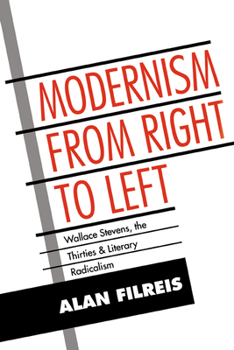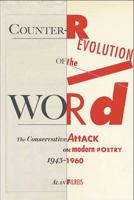Modernism from Right to Left: Wallace Stevens, the Thirties, & Literary Radicalism
Part biography and part literary history, this book is about the experience of the American modernist poet Wallace Stevens in the 1930s. Stevens is generally thought to have antagonised, even engaged, the young literary radicals of the period. Using the archives of many little-known political poets, Alan Filreis offers a detailed description of these battles, in which the very texture of the various positions taken up in the movement between left and right becomes available to us in the language of the participants. Filreis demonstrates that the radicals knew and appreciated modernism more than has been generally recognised, and that Stevens's poetry - as well as that of other then-eminent modernists was significantly influenced by political poets and critics on the left. This book is a contribution to the cultural history of the American 1930s as well as a novel approach to an oft-studied figure.
Format:Paperback
Language:English
ISBN:0521619408
ISBN13:9780521619400
Release Date:June 2005
Publisher:Cambridge University Press
Length:396 Pages
Weight:1.28 lbs.
Dimensions:0.9" x 6.0" x 9.0"
More by Alan Filreis
Customer Reviews
0 customer rating | 0 review
There are currently no reviews. Be the first to review this work.























